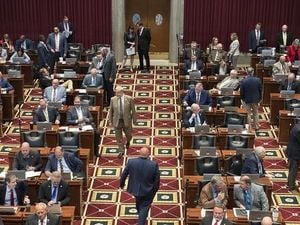Elon Musk is making headlines once again, this time for his ambitious plans to establish a new private K-12 school in Texas, aimed at shaping the minds of students with a strong focus on science, technology, engineering, and mathematics (STEM). This new educational venture could be operational as soon as summer, transforming the landscape of private education in a state known for its loose regulations regarding schooling.
The school is being positioned within the context of Texas’s so-called "microschool" movement—small, often independently operated educational institutions designed to offer personalized learning experiences. Musk’s involvement, combined with his vast financial resources, has the potential to create a significant stir in the educational sector of Austin, which is already experiencing an influx of high-earning families seeking innovative educational options.
According to reports, Musk's initiative is backed by his recently established nonprofit, known as The Foundation. This organization is not only tasked with opening a K-12 school but is also laying the groundwork for a futuristic university that Musk envisions for the future. An intriguing aspect of the Foundation is its ambitious budgeting: tax documents indicate plans to allocate approximately $8.9 million by the end of June 2024, with an initial staffing goal of 11 faculty members and an enrollment of around 50 students.
Musk's educational endeavors are not entirely new; he has prior experience in this realm. In 2014, he founded Ad Astra, a private school aimed at the children of SpaceX employees. Over time, this school shifted to an online-only format called Astra Nova, which currently serves about 200 students. Ad Astra still operates today but is not listed in state accreditation databases, showcasing how Musk's education initiatives navigate outside traditional regulatory frameworks.
As he prepares to open his newest school, Musk may benefit from not only his wealth and publicity but also from the existing ecosystem in Texas, which allows private institutions to operate without necessarily seeking government accreditation or oversight. This lack of regulatory requirements means that Musk can move quickly to establish his school, provided he can secure students and faculty in time. Charles Evans, an educational consultant, emphasized that Musk's celebrity status alone is a major draw for parents considering this new school, even if they have reservations about its unconventional format.
Indeed, some families may be excited about the prospect of sending their children to a school associated with one of the world's most innovative and wealthy individuals, while others could be more skeptical, questioning the school's academic rigor and the value of an education designed around Musk’s vision. Teri Sperry, who runs Alt Ed Austin—a resource for parents exploring alternative educational options—pointed out the excitement and curiosity circulating among potential Austin students and their families.
However, Musk's approach to education remains somewhat unorthodox. While the details regarding the curriculum at the new K-12 institution remain shrouded in mystery, his past experience with schools suggests a focus on hands-on learning that encourages innovation and creativity among students. For instance, the curriculum at Ad Astra was built around student-led learning that utilized technology and emphasized experiential projects over conventional teaching methods, signifying a striking departure from traditional educational models.
Such avant-garde schooling methods could potentially appeal to a segment of the Austin population eager for alternatives to standard public education, especially in a city characterized by its progressive and tech-influenced ideals. The unique educational environment Musk aims to foster might incorporate elements like project-based learning, collaborative problem-solving, and vibrant discussions—elements that many parents perceive as lacking in mainstream schooling.
The recent rise of microschools across Austin illustrates a growing sentiment among parents seeking more customized and engaging educational experiences for their children, particularly in the wake of disruptions caused by the COVID-19 pandemic. The shift to remote learning has prompted many to reconsider the status quo and explore diverse educational pathways for their children. As a result, Austin has seen the emergence of various alternative school models, positioning itself as a vital hub for educational innovation.
To contextualize Musk's endeavors, he is not alone in this movement. The University of Austin, a new institution backed by significant funding, aims to offer educational alternatives and has a notable focus on innovation. Its president recently indicated that many technological entrepreneurs and venture capitalists have contributed to its funding efforts, tying into the broader narrative of a technologically ambitious educational landscape forming in the region.
The success of Musk’s educational ventures will undoubtedly depend on their implementation and the engagement of potential students and families in Austin. As parents weigh their options, various factors—academic offerings, faculty quality, and school culture—will play significant roles in their decisions. The prospect of a K-12 school backed by Elon Musk may be tantalizing for some, while others may remain cautious, prompting ongoing discussions about the benefits and challenges associated with such initiatives.
With these developments unfolding rapidly, it will be interesting to observe how this latest chapter in Musk's multifaceted career plays out and what implications it may hold for the future of education in Texas and beyond. Austin’s educational landscape may very well see a transformation as Musk’s vision takes shape, potentially altering how we think about education in the 21st century.



